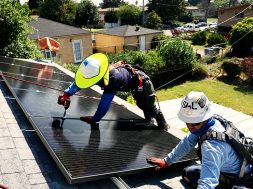
Kochi Metro: A Moment Of Pride
Completion of Kochi Metro’s phase 1 in record time is unprecedented in India’s public infrastructure historyOnce again kerala is in the news, thanks to the fastest and smartest Kochi Metro with many firsts to its credit, becoming a reality in record time. No project, not even much smaller ones, other than the gigantic Metro rail, was ever completed so fast in Kerala. Reasons for their inordinate delay have been many, starting from inefficiency in execution, bureaucratic bottlenecks, political controversies, environmental objections, ideological inhibitions and above all irresponsible trade unionism. But Kochi Metro is an exception, perhaps the only exception in Kerala’s development history. No cost overrun, not even a single man day loss due to workers’ strife, except perhaps on days of general bandh or hartal, marvelling it a standalone success. The credit goes to ‘Metro Man’, E. Sreedharan and the team under him in the Kochi Metro Rail Corporation (KMRL) and the Delhi Metro Rail Corporation (DMRC), which together executed the project, and last but not the least the work force, mostly non-Malayalees from other states, engaged in the massive civil work.
Kochi Metro, inaugurated by Prime Minister Narendra Modi on 17 June, is the first in the country to have a Communication Based Train Control (CBTC) signalling system which reduces the element of human interference in operations of the metro rail. KMRL is also the first in India to generate a quarter of its power requirement through solar panels. About 99 per cent of braking energy of each train will be fed back into the grid and used by the train that follows the one ahead.
Though the eighth metro rail project launched in India, Kochi Metro stands out, being the fastest and longest first phase to be commissioned. The innovative ‘Kochi One’ multi-purpose smart card introduced could be used across other modes of public transport in the city plus for all transactions all over the country. This is also the first metro to use ‘Make in India’ coaches. They were made by Alstom, the French collaborators at the Green City in Andhra Pradesh.
The Railway Safety Commissioner had complemented Kochi Metro for its most safe and secure metro stations. Not a single accident occurred during the last four years when the project was underway. One sixth of the thousand-odd metro pillars will have a vertical garden which will use recycled municipal waste as manure, making it a Green Metro. This is also the first metro to have a waterway component.
The total cost of Kochi Metro rail project stands at Rs 5,687.79 crore with equal stakes by the Central and State governments. The metro will span 25 km across 22 stations. Usually only a 6.8-km stretch is inaugurated in a metro rail’s phase 1. But a 13-km stretch was inaugurated in this case — Aluva to Plarivattam.
Kochi Metro has a social role too. Once fully operational, Kochi Metro will the be the first in India to have a work force comprising of 80 per cent women. The most important feature from the social point of view is the metro employing 23 persons from the transgender community, thereby emerging as the first metro to employ transgenders.
The second phase, from Palarivattom to Maharaja’s College Grounds, stretching 5 km, is now in progress and is expected to be completed in the next six months. The third phase from Maharaja’s College Grounds up to Thrippunithura, which is another 9 km, is scheduled to be commissioned by 2019. Sreedharan and DMRC have announced that they are backing out as KMRL is capable of completing the remaining portion of the project by itself.












